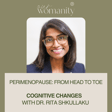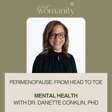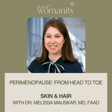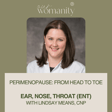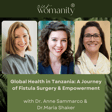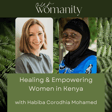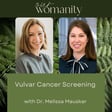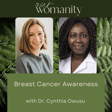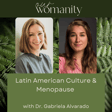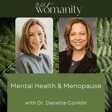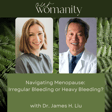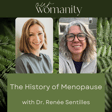
2. Breast Cancer Care: Myths & Barriers with Dr. Lily Gutnik
In this episode of Our Womanity Dr. Rachel Pope sits down with Dr. Lily Gutnik, a breast surgeon and global health advocate dedicated to advancing equitable healthcare for women.
Dr. Gutnik’s journey is deeply rooted in her experience as a first-generation immigrant. After her parents fled religious persecution in the former USSR, she grew up in the United States, where she developed a profound appreciation for education and hard work. Her global perspective—shaped by extensive travel, multilingual abilities, and cross-cultural training—has reinforced her commitment to diversity, equity, and inclusion in healthcare.
A firm believer in innovative, cross-disciplinary collaborations, Dr. Gutnik focuses on implementing high-quality, cost-effective breast cancer care, particularly for vulnerable women. She champions a convergence science approach to address the complex root causes of health disparities, using implementation science to develop interventions that drive health equity.
For Dr. Gutnik, becoming a breast surgeon is more than a profession—it is a mission to empower women through health. Tune in as she shares her insights on building sustainable healthcare solutions, tackling systemic inequities, and the future of breast cancer care.
Featured in this episode:
- Stigma around breast cancer and mistrust in the African and African American community
- Discovering Hands Initiative empowering blind women
- Uninsured and underinsured patients still face barriers to care
- Advancing breast cancer treatment in the US – But at what cost?
- Tanzania leading the charge in education, awareness, and stigma reduction
- Tuskegee Syphilis Study
Follow us on social media:
- Instagram: @drrpope
- TikTok: @vulvadoctor
- Twitter: @drrpope
Want more from Our Womanity?
If you enjoyed this episode of Our Womanity, please subscribe, rate, and leave a review. Your feedback helps us continue to bring you engaging and empowering content.
